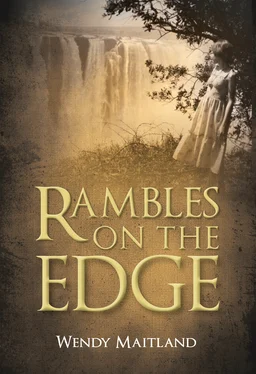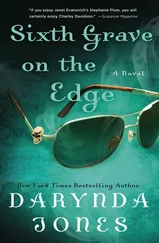‘The Macleans suddenly decided they want their son to take over the dairy, so I haven’t got a job any more, which means we’re on the move again. It’s a bit of bind, but luckily they have fixed me up with a friend of theirs who is a director of the Dairy Board and has a big herd at Hartley. I’ve been waiting for you to get back so we can pack up and do the move.’ He was trying to sound matter of fact and break it gently, but it was bad news coming so unexpectedly and so soon after arriving back. I took a deep breath and steadied myself, trying to see this as a new opportunity instead of a setback.
‘It’s a step up for you, darling, working for a big dairy chief, and the Macleans must have recommended you highly to have got you the job.’ I wanted to sound up-beat, and it worked as Adam replied enthusiastically, ‘Yes, sweetheart, you’re right, it’s a leg-up in the dairy world, and comes with more pay as well.’
Repacking tea boxes with all the possessions we had brought from Kenya hardly more than a year before, I thought of Muz repeatedly doing the same. Perpetually moving, taking down and folding curtains to put into boxes along with her Singer as I was now doing with my own sewing machine. I didn’t want it to become a symbol of curtain-making for an everlasting series of different-sized windows, and remembered promising myself during the early days at Glanjoro that my own family would never be subjected to the same upheavals. Now, here we were on the road again, with another change of school for Louise. But Hartley, a small farming town further north on the road to Salisbury, was more our sort of place I consoled myself, more like Nakuru, and we would make a proper home there.
‘Remember to pack the dogs’ beds, and their bowls when we go,’ Louise reminded me. ‘If they’ve got their own things with their own smell on them, they won’t mind being in a new place. And when we get there, remember you promised we can have cats, one for each of us. I’m already thinking of names. And you said we can have chickens too, for laying eggs. Mum – are you listening?’
The district of Hartley with its rich agricultural land lay almost in the dead centre of the country where the main arterial road from the capital, Salisbury, ran south to the border, bisecting the town. For shopkeepers and cafés the passing trade was a bonus. The town itself was very much smaller than Gwelo, having just one main street of shops serving a farming community that radiated from this rural hub into pastoral countryside, where the climate was considerably less harsh than further south. This is where we arrived with our boxes and dogs and furniture at the start of 1971. I had not seen either the farm or the house where we would live before moving and it had been a scramble to relocate ourselves, since Adam had been given only a month’s notice and this was almost at an end by the time I got back from England. He had been to see the new farm, Rogate, and the manager’s house which he described as hardly luxurious but adequate. What he failed to mention was that the house wasn’t really a house at all but a converted grain shed, standing all by itself in the middle of a bean field. It was a large field, which I noted was just as well since on one side traffic thundered past on the main Salisbury road after leaving the town speed limits. We were five miles from the town, so that shops and school were conveniently close – similar to the situation we had left behind in Nakuru – a positive feature that could be used to make us feel more at home I decided.
Any other plus factors to be found in this latest move were hard to identify. The house itself was so dismal in every possible way that it surpassed even Fa’s worst excesses during the periods of his crazed purchases and building schemes. I consoled myself in thinking about the laughs I could have when describing it to Ros, and how outraged she would be that I was reliving the travesties of our childhood. Adam tried to be encouraging about the house. ‘At least it has three bedrooms so Louise can have her own instead of sharing with the boys, and there are neighbours quite close on the next-door farm with a daughter the same age as Louise, so they will be going to Hartley School together and you can share school runs.’
I contemplated these assets while introducing Louise to her own private bedroom, and when she pointed out that the window had no glass, only chicken wire stretched across the open space, I reminded her that Grandpa and Grandma’s dining room window at Glanjoro was the same and she hadn’t complained about that. ‘Well, I wasn’t sleeping in the dining room, and rain never came in that window, but here it will come right onto my bed. And mozzies will come in too. Look, you can already see where there have been puddles on the floor. Look, Mum, you must show Dad.’
‘We’ll screen the window somehow, don’t worry about that, just be glad to have your own room.’
There was no time to think about screens or anything else at that stage while unloading our furniture and boxes into the house before any rain did arrive. The rainy season had started and we were lucky that the furniture van had been able to ford a small river that looked a bit too close to the house for safety if it overflowed. I wondered if that factor had been a reason for abandoning the use of the building as a grain shed. The dogs, freed from the back of the car where they had been piled in with suitcases, ran around getting in the way, so the first unpacking was to bring out their bowls, and a kettle to make tea for ourselves and the removal men.
Our furniture was a sparse collection of essentials hastily assembled when we first arrived in Gwelo and now looked even more dreary as the assorted pieces became dispersed among rooms, but I was glad to see that we did have electricity and a telephone.
Simon stood outside dangling Peter’s pot by its handle in one hand, while the other hand held Peter’s reassuringly as, side by side, they looked up at the sky where dark clouds were rolling in. ‘When we went in Grandpa’s plane it could go really high,’ Simon was telling Peter earnestly, ‘and it could go inside clouds, but only white ones, not black ones like these. Grandpa said they were too bumpy and the plane had to go round them.’ Peter listened but said nothing in reply. At two years old he was not yet talking, having no need to while Simon anticipated every need and looked after him so attentively that I began to think it might lead to arrested development. Simon himself was only four, but had already become a commanding presence with assumed responsibilities that included taking charge of Peter and the pot. This was carried around like a trophy to be flourished at any moment of indication. Peter had just one word of speech: ‘Wa-wa,’ his name for Simon. Instant attention would follow whenever Peter spoke this word. It was endearing in a way, but not if normal speech became permanently delayed. In addition he was still very small for his age, but Muz pointed out that her family were all petite and small-boned, including her father, and this went with handsome features she assured me.
I longed for her to visit, or Fa, or Ros; especially Ros who was a great ally in converting any setback into a cause for merriment and parody. We had found this was a good way of defusing all kinds of stresses and weirdness as we grew up clinging onto our madly spinning family carousel. The laughter remedy probably saved us from joining poor Spindle in mental oblivion.
There was little chance of Muz visiting, as she explained she could not contemplate coming without Andy, but that he had no inclination to accompany her and risk encountering savage animals and deadly African diseases. Instead they were enjoying frequent forays into the civilised and charming territory of France to explore its great motorways, with Andy hugging the highroad like Mr Toad. Once he was behind the wheel in the redoubtable Austin Princess he was unstoppable. ‘Now that your father has got his divorce,’ Muz wrote, ‘I am free to marry again, and it will no doubt help to ease any guilt he might feel in having abandoned me if I am safely married off to someone else. Andy continues to press proposals of marriage at every opportunity and I can see no reason to go on refusing, despite Mary’s opposition. I don’t love him in the sense of being in love, but he incessantly declares his love for me most sincerely, and we have a loving friendship. At my age I can’t really ask for more, so I will accept him the next time he asks.’
Читать дальше












